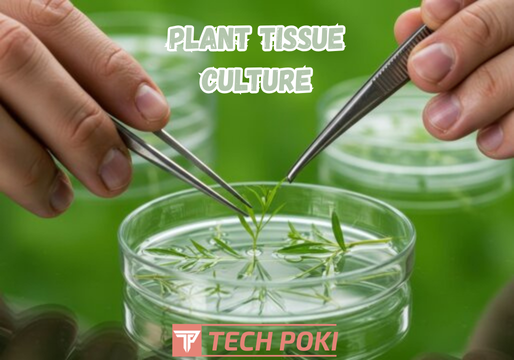Introduction to Biotechnology Careers
Biotechnology jobs are rapidly becoming some of the most sought-after positions in today’s global workforce. With advancements in science, healthcare, agriculture, and environmental solutions, biotechnology professionals are shaping the future of innovation. A career in this field offers both intellectual fulfillment and financial stability, attracting graduates and professionals from around the world. Whether you are interested in research, technology, or business, there are numerous biotech jobs to explore.
Why Biotechnology Jobs Are in High Demand
The demand for biotechnology jobs continues to grow because biotechnology impacts almost every industry. From creating life-saving medicines to developing sustainable agricultural practices, biotechnology provides real-world solutions. Rising health challenges, climate change, and food security concerns have made biotech jobs critical to progress. According to industry reports, global biotechnology markets are expanding at double-digit rates, ensuring long-term career opportunities for skilled professionals.
Top Biotechnology Career Paths
Biotechnology jobs are diverse, offering opportunities across healthcare, agriculture, environment, and industrial sectors. Below are some of the most promising biotech jobs in the current market.
1. Genetic Engineer
Genetic engineering is one of the most dynamic career paths in biotechnology. Genetic engineers manipulate DNA to develop new therapies, disease-resistant crops, and innovative industrial products. These biotechnology jobs require strong skills in molecular biology, bioinformatics, and lab research. Salaries in this field are competitive, with demand expected to rise due to advancements in gene-editing technologies.
2. Biomedical Scientist
Biomedical scientists are at the core of healthcare-focused biotech jobs. They work on disease research, vaccine development, and diagnostics. These professionals collaborate with doctors and pharmaceutical companies to ensure patients receive better treatments. Biotechnology jobs in biomedical science often require advanced degrees, but they are among the most rewarding in terms of societal impact.
3. Biochemist
Biochemists study the chemical processes within living organisms. They play a critical role in drug discovery, agricultural improvements, and renewable energy research. Biotechnology jobs in biochemistry involve both lab work and data analysis. Professionals in this role contribute to the development of everything from new medicines to eco-friendly materials.
4. Clinical Research Associate
Clinical research associates (CRAs) monitor and manage clinical trials for new drugs and treatments. These biotechnology jobs bridge the gap between research labs and healthcare providers. CRAs ensure compliance with regulations while overseeing the safety and effectiveness of clinical trials. This career path is essential to the pharmaceutical and healthcare industries.
5. Bioinformatics Specialist
Bioinformatics specialists combine biology with computer science to analyze complex biological data. These biotechnology jobs are vital in genomics, drug design, and personalized medicine. As data-driven healthcare continues to grow, bioinformatics professionals are in high demand. Strong programming, data analysis, and biological knowledge are required to succeed in this role.
6. Biotech Sales & Marketing
Not all biotech jobs are lab-based. Professionals in biotech sales and marketing help bring innovations to market. They connect research institutions and pharmaceutical companies with clients, ensuring that products reach healthcare providers and industries. These biotechnology jobs require a blend of scientific knowledge and business skills, making them ideal for professionals who want to merge science with communication.
Emerging Fields in Biotechnology
The future of biotechnology jobs is shaped by cutting-edge research and technological breakthroughs. Emerging fields are creating brand-new career paths for the next generation of scientists and professionals.
1. CRISPR & Gene Editing
CRISPR has revolutionized biotechnology. Biotechnology jobs in this field focus on gene therapy, genetic modification, and agricultural improvement. CRISPR researchers are highly valued for their ability to develop precise treatments for genetic disorders.
2. Personalized Medicine
Personalized medicine is one of the fastest-growing sectors in biotechnology. Biotech jobs in this area involve tailoring treatments based on an individual’s genetic profile. This approach improves patient outcomes and reduces side effects. Biotechnology jobs in personalized medicine are expanding rapidly in both research and clinical applications.
3. Agricultural Biotechnology
Agricultural biotechnology addresses global food security. Biotechnology jobs in this sector focus on developing pest-resistant crops, improving soil fertility, and enhancing nutritional content. Professionals in agricultural biotech are vital to feeding a growing population under changing climate conditions.
4. Environmental Biotechnology
Environmental biotechnology jobs involve finding sustainable solutions to pollution, waste management, and renewable energy. This field combines science with environmental conservation. Biotech jobs in this area focus on biofuels, bioremediation, and green energy initiatives.
Skills Needed for Biotechnology Jobs
To succeed in biotechnology jobs, professionals need a mix of technical, analytical, and soft skills. Some of the most in-demand skills include:
- Laboratory techniques: DNA sequencing, protein analysis, and microscopy.
- Data analysis: Ability to handle biological data using statistical and computational tools.
- Interdisciplinary knowledge: Combining biology, chemistry, physics, and computer science.
- Problem-solving: Applying scientific knowledge to solve real-world challenges.
- Communication skills: Essential for biotech jobs in sales, marketing, and collaborative research.
- Adaptability: The biotech industry evolves quickly, requiring professionals to learn new tools and methods.
Average Salaries in Biotechnology Careers
One of the most common questions about biotechnology jobs is salary potential. Compensation in this field varies depending on education, experience, and sector. On average, entry-level biotech jobs start around $50,000–$65,000 per year, especially for laboratory assistants or junior research positions. With advanced degrees and experience, salaries rise significantly.
For example, genetic engineers and bioinformatics specialists can earn between $80,000 and $120,000 annually in established markets like the United States, Germany, or the United Kingdom. In pharmaceutical companies, senior roles such as clinical research managers often command salaries above $130,000 per year. Meanwhile, biotech sales and marketing professionals frequently earn strong base salaries plus commission, pushing total income beyond many traditional research positions.
The global demand for biotechnology jobs is also creating new opportunities in Asia, particularly in India and China, where salaries may be lower but career growth is rapid. Overall, biotechnology careers remain financially rewarding and provide strong job security due to the industry’s constant innovation and global importance.
Biotechnology Jobs by Sector
Biotechnology is not limited to laboratories or pharmaceutical companies. The field spans across multiple industries, making biotechnology jobs some of the most versatile and resilient career paths in science. Below are the major sectors employing biotech professionals.
1. Healthcare & Pharmaceuticals
The healthcare and pharmaceutical sector remains the largest employer of biotechnology professionals. Biotechnology jobs in this area include drug discovery, vaccine development, clinical research, and personalized medicine. With global health challenges such as cancer, diabetes, and rare genetic disorders, biotech jobs in healthcare continue to expand. The COVID-19 pandemic further highlighted the critical role of biotechnology in vaccine production and rapid diagnostic tools. Professionals in this sector not only earn high salaries but also contribute directly to saving lives.
2. Agriculture & Food Science
Agriculture is another major sector driving the growth of biotechnology jobs. Agricultural biotechnology focuses on creating disease-resistant crops, developing biofertilizers, and enhancing nutritional quality of food. For example, biotech experts are working on drought-resistant grains to combat climate change impacts. In food science, biotech jobs include developing plant-based proteins, lab-grown meat, and sustainable food processing methods. With the global population expected to reach nearly 10 billion by 2050, agricultural biotechnology professionals will be in high demand to ensure food security.
3. Environmental & Energy
Environmental biotechnology is one of the most promising and socially impactful fields. Biotechnology jobs in this sector revolve around sustainability—such as developing biofuels, recycling waste, and cleaning up oil spills through bioremediation. Energy companies are increasingly investing in biotech solutions to replace fossil fuels with renewable alternatives. Professionals in this area combine biology with environmental science to address climate change, making biotech jobs in environmental fields both meaningful and future-oriented.
4. Research & Academia
Universities, research institutes, and government labs also offer extensive biotechnology jobs. These roles focus on fundamental science, applied research, and developing new technologies. Many professionals in academia also mentor future scientists, ensuring the continued growth of the industry. Research-oriented biotech jobs often emphasize publications, grants, and long-term projects. While salaries in academia may be lower compared to the private sector, the work provides intellectual fulfillment and the chance to contribute groundbreaking discoveries to the scientific community.
Countries with the Best Opportunities in Biotechnology
Biotechnology jobs are expanding worldwide, but certain countries stand out as global leaders in research, innovation, and employment opportunities.
- United States: Home to major biotech hubs like Boston and San Francisco, the U.S. offers the highest salaries and a wide range of biotech jobs in healthcare, pharmaceuticals, and bioinformatics. Top firms and research institutes continuously drive innovation, creating thousands of new positions each year.
- Germany: Known as Europe’s biotech powerhouse, Germany provides strong opportunities in pharmaceuticals, medical devices, and agricultural biotechnology. Biotechnology jobs here benefit from significant government funding and a well-established research ecosystem.
- United Kingdom: With leading universities and biotech startups, the UK is a strong hub for gene therapy, clinical research, and personalized medicine.
- China and India: Both countries are rapidly emerging as biotech leaders due to heavy investments in healthcare and agriculture. Biotechnology jobs in Asia are growing quickly, offering opportunities for young professionals.
- Switzerland: Hosting some of the world’s largest pharmaceutical companies, Switzerland offers highly paid biotech jobs, especially in research and clinical development.
For professionals seeking international exposure, these countries provide the best combination of salaries, research infrastructure, and long-term growth.
How to Start Your Career in Biotechnology
Starting a career in biotechnology requires both education and practical experience. Most biotechnology jobs require at least a bachelor’s degree in biotechnology, biology, chemistry, or a related science field. For advanced positions such as genetic engineering or clinical research, a master’s or PhD is often necessary.
Here are key steps to begin:
- Earn a Relevant Degree: Choose programs that emphasize lab skills, data analysis, and interdisciplinary studies.
- Gain Lab Experience: Internships, research projects, or volunteer work in biotech labs build practical skills employers value.
- Specialize: Focus on areas like bioinformatics, agricultural biotech, or biomedical research depending on your interests.
- Develop Technical Skills: Learn lab techniques, statistical tools, and software used in bioinformatics.
- Network with Professionals: Attend biotech conferences, join professional organizations, and connect with recruiters.
- Stay Updated: Biotechnology evolves rapidly, so continuous learning and certifications can keep you competitive.
Starting small—such as working as a research assistant—can lead to higher roles in clinical research, genetic engineering, or biotech management.
“For more insights, explore our full collection of articles in the Biotech category“
FAQ Section
Q1: What are biotechnology jobs?
Biotechnology jobs involve applying biology and technology to create solutions in healthcare, agriculture, energy, and the environment. Careers range from genetic engineering to biotech sales.
Q2: Are biotech jobs in demand?
Yes. Biotech jobs are in high demand due to global challenges like healthcare needs, food security, and environmental sustainability. Demand is expected to rise for decades.
Q3: Do biotechnology jobs pay well?
Salaries vary by role and location, but most biotechnology jobs are well-paid. Genetic engineers, bioinformatics specialists, and clinical researchers often earn above-average salaries.
Q4: Which country has the most opportunities for biotech jobs?
The United States leads globally, but Germany, the UK, Switzerland, China, and India also offer strong opportunities.
Q5: Can I get into biotechnology without a PhD?
Yes. Many biotech jobs only require a bachelor’s or master’s degree, especially in lab support, sales, and quality control. Advanced research positions, however, often require a PhD.



